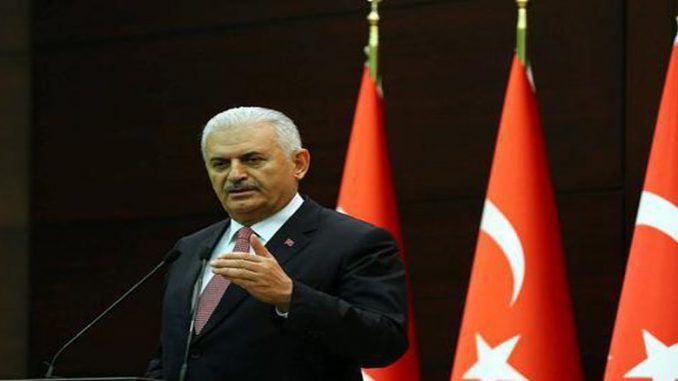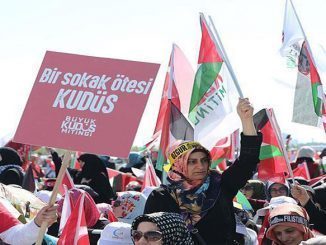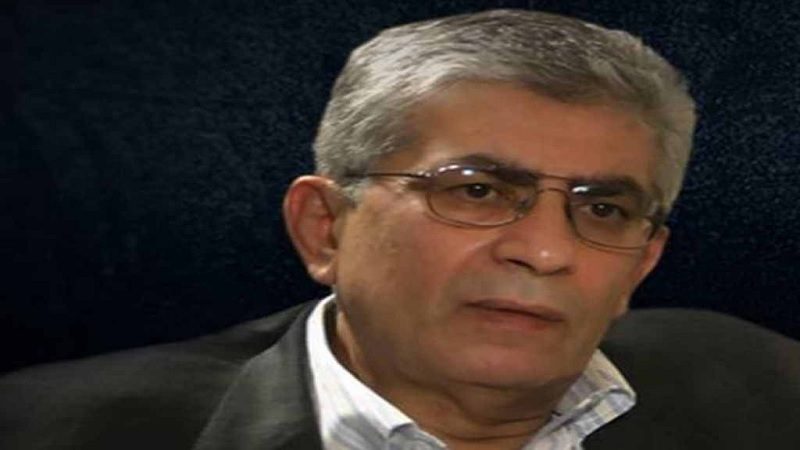
Turkey’s prime minister announced a cabinet reshuffle on Wednesday, replacing or swapping 11 ministers in the 26-member council of ministers, including the ministers for justice and defense.
The announcement came months after President Recep Tayyip Erdogan regained the leadership of Turkey’s ruling party after a referendum ushering in a series of constitutional changes.
Binali Yildirim named legislator Abdulhamit Gul as the new justice minister and former deputy prime minister Nurettin Canikli as the defense minister. They replace former minister for justice Bekir Bozdag and for defense Fikri Isik, who were both appointed deputy prime ministers. In all, four out of Turkey’s five deputy prime ministers were replaced.
Bozdag had largely overseen a major government crackdown following last year’s failed military coup that Turkey has blamed on U.S.-based Muslim cleric Fethullah Gulen. More than 50,000 people suspected of links to the coup or to Gulen have been arrested.
The key ministries for the economy, finance, foreign affairs, the interior and European Union affairs remained unchanged. Yildirim appointed Julide Sarieroglu as the minister for labor and social security, raising the number of women in the Council of Ministers to two.
Yildirim made the announcement following a previously unannounced meeting with Erdogan and described the reshuffle as a “change of blood.”
“I wish my new colleagues success and hope that our (new) Council of Ministers is beneficial to the country,” Yildirim said.
Yıldırım appoints four new aides
Yıldırım promoted Justice Minister Bekir Bozdağ and Health Minister Recep Akdağ as new deputy prime ministers while appointing Bursa Deputy Hakan Çavuşoğlu as one of the deputy premiers. Çavuşoğlu is among six new names in the cabinet.
These changes indicate that Yıldırım wanted to work with figures he can better cooperate in the new process.
Foreign, energy teams in place
Despite expectations, no major changes have taken place in the foreign team. EU Minister Ömer Çelik and Foreign Minister Mevlüt Çavuşoğlu preserved their places although speculations were high that President Erdoğan’s chief foreign policy advisor İbrahim Kalın could resume a role in a foreign-policy related position at the cabinet.
On economy, Mehmet Şimşek and Economy Minister Nihat Zeybekçi have remained in their roles in coordinating economy. Canikli’s role in coordinating investments and banking will be transferred to one of the new deputy prime ministers.
Energy Minister Berat Albayrak, son-in-law of President Erdoğan, will continue his service to the government as the energy minister.
Development Minister Lütfi Elvan and Finance Minister Naci Ağbal also secured their positions.
Six new names
Along with Deputy Prime Minister Hakan Çavuşoğlu, Justice Minister Abdülhamit Gül, Labor Minister Jülide Sarıeroğlu, Youth and Sports Minister Osman Aşkın Bak, Food and Agriculture Minister Eşref Fakıbaba and Health Minister Ahmet Demircan are new names in the government.
Former Labor Minister Mehmet Müezzinoğlu, Youth and Sports Minister Akif Çağatay Kılıç, Food and Agriculture Minister Faruk Çelik, Culture and Tourism Minister Nabi Avcı have left their positions to their successors through the reshuffle.
Two female ministers
With the appointment of Jülide Sarıoğlu, a lawmaker from Adana, as the labor minister, the number of female ministers in the Turkish cabinet increased to two. Family Minister Fatma Betül Sayan Kaya, who was deported by the Dutch government from the Netherlands in a bid to avoid her meeting with the Turkish community in Rotterdam ahead of the April 16 referendum, could keep her position in the government. Sarıeroğlu is an expert on trade unions and had served at the Confederation of Righteous Trade Unions (HAK-İŞ).
Key minister in place
Interior Minister Süleyman Soylu has become one of the figures who could protect his position in the government due to his relentless struggle against the Fethullahist Terror Organization (FETÖ) and the outlawed Kurdistan Workers’ Party (PKK).
The referendum approved a series of constitutional changes abolishing the office of the prime minister and concentrating much of the executive powers in the hands of the president.
While most of the changes will come into effect after the next general elections in 2019, one amendment came into effect immediately — scrapping laws that require the head of the state to sever ties with political parties. Erdogan was re-elected chairman of the ruling party in an extraordinary congress on May 21.
Erdogan co-founded the Justice and Development Party in 2001 and led it for more than a decade until he was elected president in 2014.



